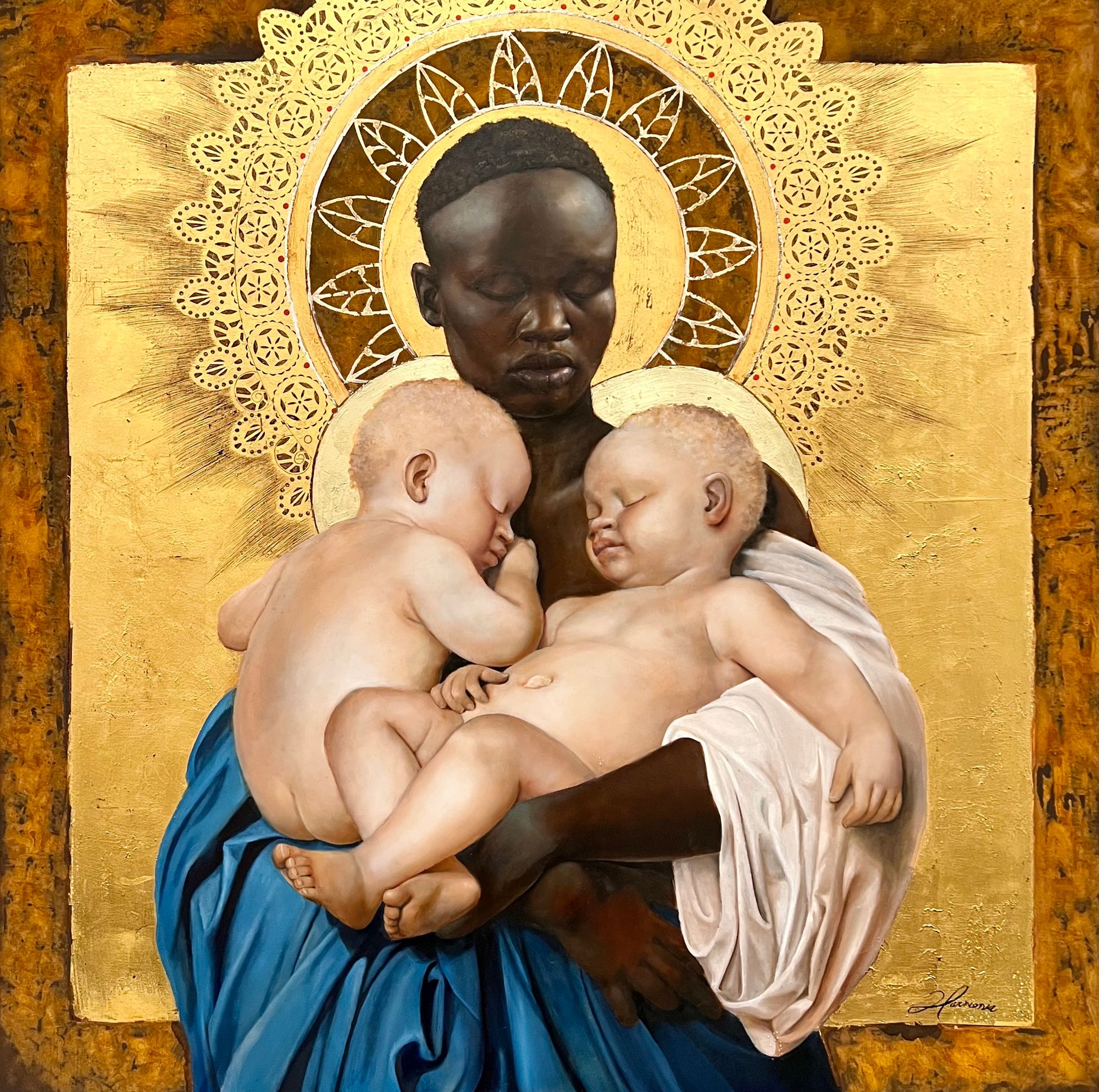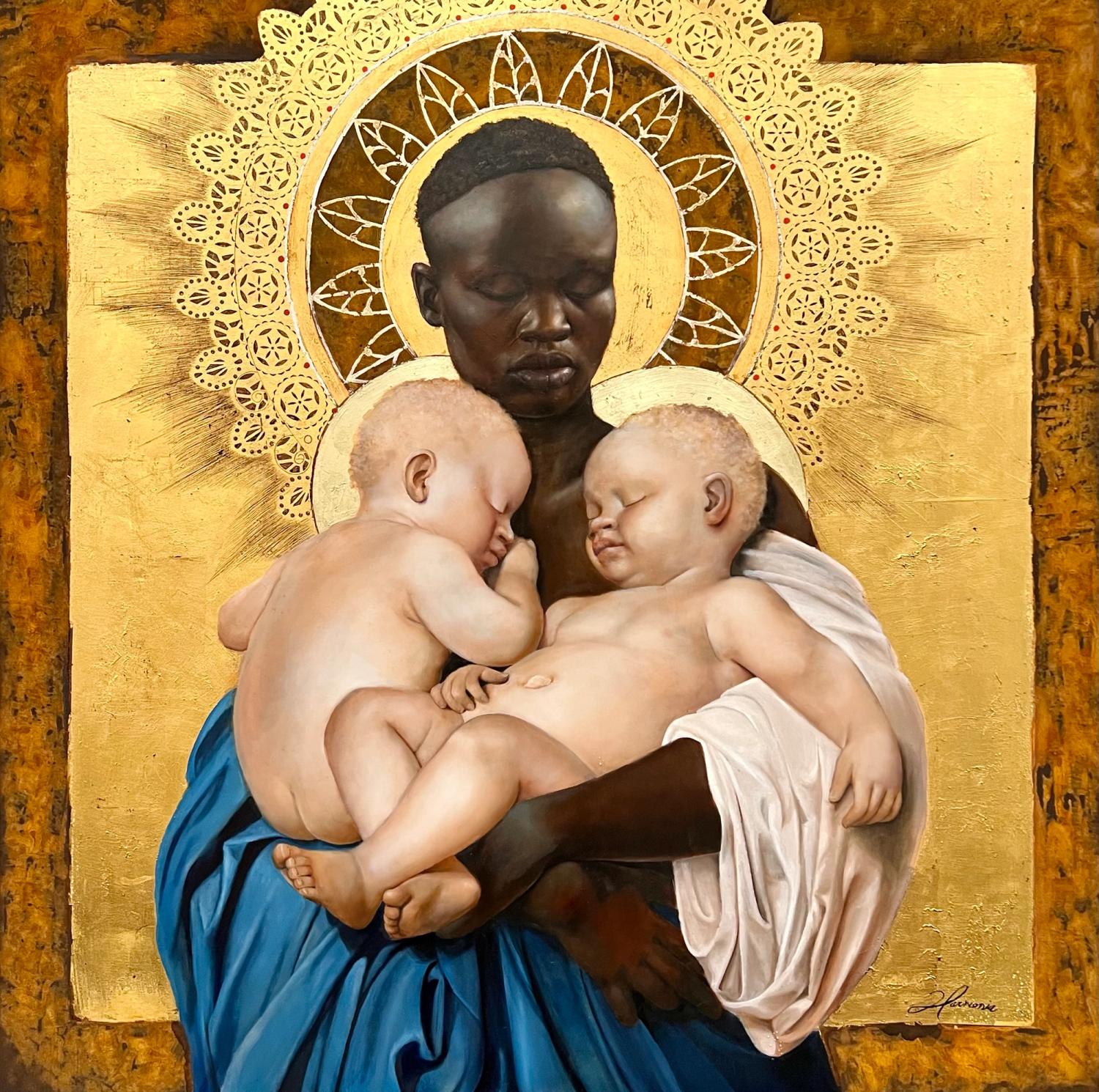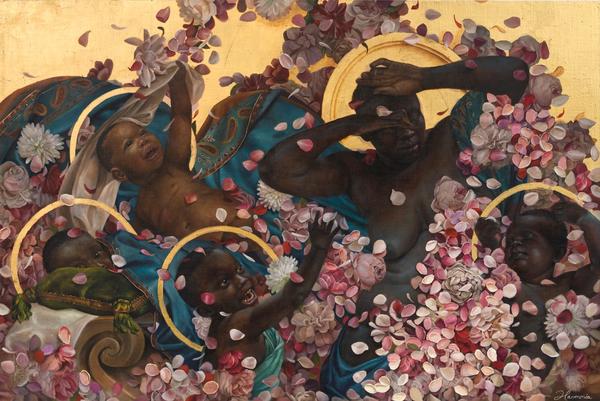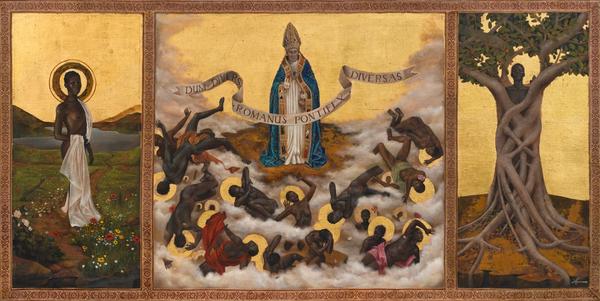Yemaya with Ibeji
Oil on Wood Panel, 36" x 36"
Africa’s birth rate of twins is one of the highest in the world. A sign of luck, prosperity, and happiness, the Ibeji, the orisha of twins, represent and watch over twins in their daily lives. The Ibeji are considered one soul. If one twin passes, an Ibeji figure is carved from wood. The wooden sculpture is then dressed and taken care of by the mother and the surviving twin. In doing so, the siblings and their one soul are kept together and intact.
Different stories exist as to the identities of the birth parents. Because the Ibeji are associated with red and blue, colors linked to Shango and Yemayá, respectively, they could be the children of these two powerful orishas. Here, the two figures snuggle in the arms of Yemayá, the mother to all and protector of the Ibeji. Rosales’s decision to present the twins with albinism brings attention to the persecution of albinos in parts of Africa, and therefore, making the Ibeji more sacred.
The painting’s pyramid composition focuses on Yemayá’s love and the peacefulness of the work. Its simplicity is emphasized by the rich embellishments of Yemayá’s delicate golden lace ori and blue silk dress with abundant, deep folds that emulate Flemish textiles seen in Northern Renaissance artistic models, such as Jan van Eyck.
Exhibitions
Yoruba WorldΩA Omega Alpha






